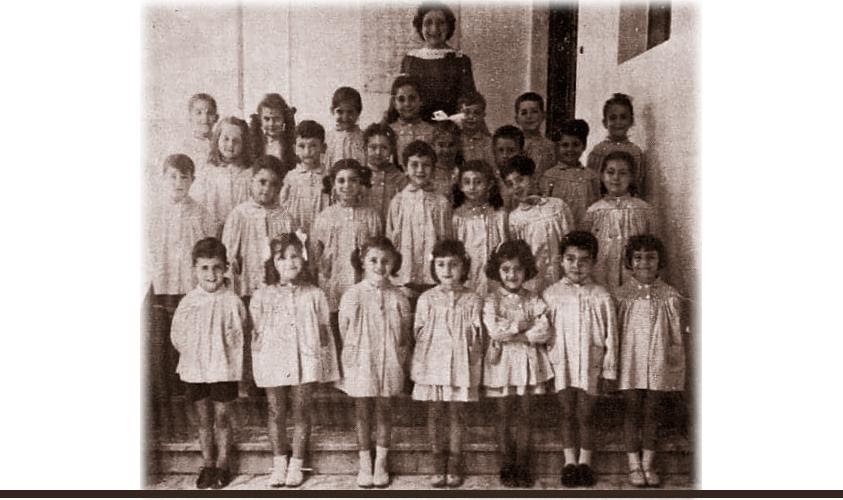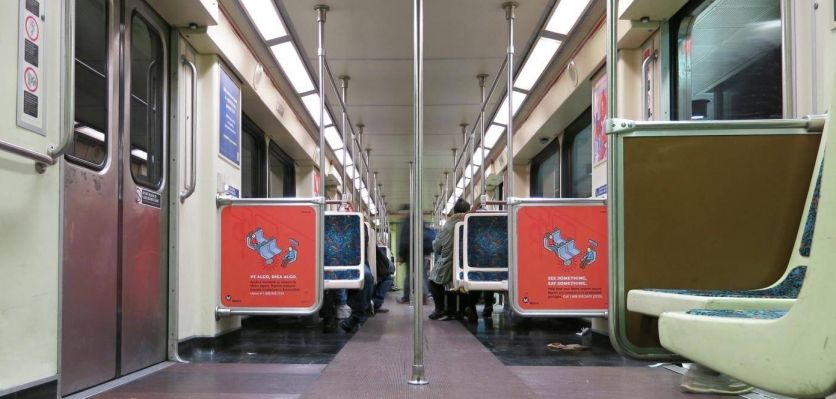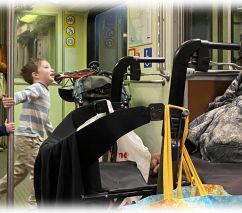Creative Writing | ‘Metro commuter shorts': 'Regulars’ by Harout Dedeyan
July 01, 2020
Architectural designer, photographer, and now writer Harout Dedeyan’s daily commute once involved a stroll on the Los Angeles metro, where he would often jot down notes and snap photos of the happenings along his journey. Due to the COVID-19 pandemic, commutes have been put on hold, but his project has shifted into gear. In this h-pem exclusive series, titled “Metro Commuter Shorts,” Harout shares some of the wild stories overheard during these rides. Check out the second installment, “Regulars,” below! (In case you missed it, scroll down to read the first installment, “Welcome to the Red Line.”)
| Writer's name | Harout Dedeyan |
| Occupation | Photographer; Architectural designer |
| City/Country | Northridge, Los Angeles, Calif. |
| About the writer |
|
Regulars
He pushes the red Bianchi towards the edge of the platform, the cleats on his cycling shoes clacking on the tiled floor to the rhythm of his awkward walk.
“You haven’t seen this one before, have you?” he asks with his eyes when he joins me by the yellow line. We wait for the slowly approaching train to come to a stop.
Bike Guy. I see him practically every morning on my daily commute. We haven’t exchanged a single word. I don’t know his name, yet I know that he collects vintage Italian bicycles, and he knows that I, too, appreciate bikes.
“It’s a nice one,” I smile back.
Metro regulars are masters at non-verbal communication.
The Hummer has already taken his usual seat sideways from me, with his back to the platform. As always, he rests his bag on the floor between his feet, bends over, gently pulls out his prayer book, pinches the red ribbon between his thumb and index, and pulls on it, opening the book to the marked page. He then gives me his customary look—a heads up of sorts letting me know that he‘s about to start his ritual.
“He’s going to start humming again, isn’t he…” the Mexican lady who sits nearby gives me her familiar eye-roll with a sarcastic half-smile, while shifting some of the cleaning products in the bag on her lap.
I smile again, as the humming starts. Eyes half-closed, the Hummer’s fingertip traces imaginary clouds on the page, jumping from syllable to syllable to the rhythm of his humming.
I’m not a religious person, but for some reason, I find it comforting to witness this daily ritual on my way to work.
Paper Man is the exception to the norm. He’s a regular, our paths cross frequently, yet I’ve never been able to read him. He typically stands on the platform exactly where the doors will open when the train comes to a stop and is the first to jump in and take his preferred seat. Soon after, he pulls out his newspaper, unfolds and carefully spreads it open on his lap with the back of his hand and fully isolates himself in it; the repeated left to right movement of his irises and alternately fidgeting huaraches are the only visible signs of life. The rare instances when he looks up are to monitor the trip progress or to check the time to make sure that he’s not late for work, or for his transfer to the Orange Line on his way back. I imagine him plucked from a bureaucratic position in the old Eastern Bloc of the 70s and dropped in this foreign land to which he can’t—or won’t—adapt.
***
Tired souls jockey for position in front of the doors on the ride back as we approach the last station. Paper Man is almost always first to rush out when the doors open to be part of the 20 or so people who herd themselves into the elevator first. A surprise, last-minute track change shifts exit duties to the doors on the opposite side, relegating Paper Man to the back of the crowd in the process.
Slowly, we come to a stop. After a torturous few seconds, a loud trumpet finally announces the commencement of the corrida, and the gates slide wide open.
Olé! Paper Man clumsily jostles people out of his way, ploughs into a kid and his dad standing by the doors, emerges onto the platform like a victorious bull, and charges towards the red sign affixed to the glass elevator shaft. In his wake, the kid gets spun around and pushed to the ground. His head bumps the back of the adjacent seat as he lands on his knees, facing inwards, his eyes seeking out his dad, next to whom he was standing a moment ago.
***
Kindergarten was an eternity ago, yet a scar from within the depths of my memory hits me with a jolt as I see the look on the kid’s face.
We are seated silently in a circle, our blue and pink uniforms creating two bicolor concentric rings, listening to Miss Angèle standing in the center. All of a sudden, she gets angry at one of the kids for some unbeknownst reason. She pauses dramatically. Her index finger, straight as an arrow, pointing to her impatiently-tapping right foot, she yells:
“Eva, come here, right now!”
A little girl in pink a few uniforms over to my left stands up and starts approaching her. As soon as she’s within arm’s reach, Miss Angèle grabs her by the hair and starts yanking to and fro in repeated jerky movements, in tempo with her monosyllabic utterance:
“Ho’w-ma’-ny’-ti’mes-mu’st-I’-te’ll-yo’u-tha’t...”
Before she can finish her sentence, Eva’s hair gets ripped out. Cruella’s hand, suddenly free from the opposing resistance of the hair, flies high above her head as she casts an astonished look at the tuft of long dark hair still clenched between her fingers.
My kid’s gut tells me that something is very wrong.
Eva doesn’t cry. She slowly moves her hand up to her head, her little fingers groping for the source of pain. Her eyes widen as she feels a large coin-sized patch of exposed scalp that a heartbeat ago was covered with hair. She starts sobbing quietly.
We didn’t see her for some time after that.
***
Something is very wrong here, too. The bull is long gone. The kid’s dad helps him stand up, rubs his head, pats the dirt off his knees, and holds his hand as they walk past outside my window, slowly headed towards the stairs. I can’t hear their conversation. What could he possibly tell him, I wonder?
Lost in thought, I suddenly realize that I’m the last one in the car.
Paper Man has missed his bus. Eventually, we catch up with him as he awaits the next one, standing exactly where the doors will open when the bus comes to a stop. A finger taps him on the shoulder.
“I’m not sure how you treat kids where you come from but here, we certainly don’t shove them like animals!”
Having said his bit, and getting no response at all, dad rests his hand on the kid’s shoulder, turns around, and they walk away.
“What was that about?” mumbles Paper Man to no one in particular, looking around for sympathy.
As he turns, he meets my gaze. We stand frozen for a brief second.
I still can’t read his eyes.
I sure hope he can read mine.
 “Kindergarten” (Image courtesy of Harout Dedeyan)
“Kindergarten” (Image courtesy of Harout Dedeyan)
In case you missed it, read the first installment of "Metro commuter shorts": "Welcome to the Red Line."
Are you an aspiring writer, poet, or artist? Show the world what you've got!
Join our community and receive regular updates!
Join now!



Attention!